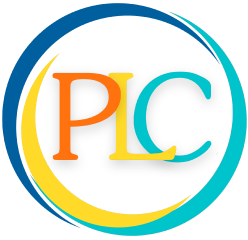The Real NTU™ 
Progressive Life Center was founded with the aim of helping individuals, families, and organizations recognize and maximize their inner resources and strengths, enhance relationships and connectedness with others, and function harmoniously in the broader environment.
PLC uses the NTU™ Service Delivery Model as the foundation for all services and interventions provided to youth and families. Because of its universal principles and focus on spirituality and cultural awareness, NTU™ can effectively meet the clinical, mental health and human service needs of youth, families, and groups regardless of ethnicity.
NTU™ is a philosophy, a treatment paradigm, and a lifestyle.
  | NTU™ Service Delivery Model is a philosophy and framework for the delivery of a full range of psychological and organizational development services. NTU™ (pronounced ‘in-to’), is a Bantu (central African) term that loosely translates to mean ‘essence.’ For us, NTU™ is the universal life force that exists within all humanity and ultimately generates the healing energies of our spirits. |
The NTU™ Approach to Health and Healing is a clinical framework rooted in an Afrocentric understanding of human behavior and interaction processes. NTU™ is shaped by four major humanistic assumptions: 1) People are innately good; 2) Positive intention is the root of all behavior; 3) Healing is a natural process; and 4) The therapist, social worker, counselor, etc., is a facilitator of the healing process. These assumptions imply an optimistic view of humanity and faith in the self-corrective nature of the human experience given the proper support and structure in which to grow. They also clarify the role of the helpers as facilitative, supportive and focused.
Because we offer a multitude of children and family services, across diverse communities, to client systems with varying clinical, mental health, and social needs; it is imperative that organizationally we maintain a continuity of professionalism and skill in all service delivery milieus. To that end, the NTU™ Therapist must be competent and confident in his role as “healer” and demonstrate with consistency his ability to establish meaningful therapeutic relationships with clients, as it is through these relationships that the healing properties of NTU™ are ignited.
GOALS OF NTU™
| TRANSLATION When people are in harmony, experience authenticity, and are driven by core values, their behaviors are more functional, attitudes are more positive and they are generally easier to be around. |
NTU PRINCIPLES
| TRANSLATION The more a person experiences the four principles in their lives, the happier and healthier they will be.
|
NTU™ ASSUMPTIONS
| TRANSLATION Recognizing these things about others, ourselves, and our interactions will enable us to work WITH people through the most difficult of situations.
|
NTU™ CHARACTERISTICS
| TRANSLATION These are the “adjectives” that define NTU™ as a philosophy and a system of interacting.
|
